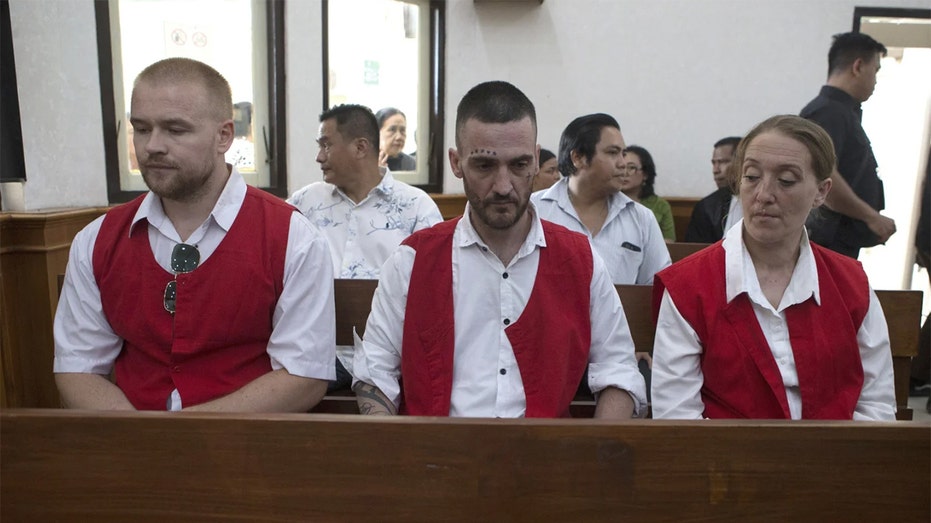British Nationals Threatened with Death Penalty for Alleged Cocaine Smuggling in Indonesia
British citizens facing execution in Bali after arrest for cocaine smuggling, with evidence of prior successful attempts.

Three British nationals are facing grave legal consequences in Indonesia after allegedly attempting to smuggle nearly a kilogram of cocaine into the island of Bali. According to prosecutors, the defendants, Jonathan Christopher Collyer, 28, Lisa Ellen Stocker, 29, and Phineas Ambrose Float, 31, could face the death penalty by firing squad if convicted under Indonesia’s stringent anti-narcotics laws.
Customs officials intercepted Collyer and Stocker at Bali’s Ngurah Rai International Airport on February 1st, after X-ray screenings detected suspicious packages disguised as food items within their luggage. Subsequent laboratory tests revealed that pouches labeled as "Angel Delight" powdered dessert mix actually contained a total of 993.56 grams—over two pounds—of cocaine, with an estimated street value of approximately 6 billion rupiah ($368,000).
Just two days later, officers executed a sting operation, arresting Float in a hotel parking lot in Denpasar after he reportedly received the illicit drugs from the other suspects. Prosecutors indicated that while Collyer and Stocker are being tried together, Float’s case is proceeding separately in the courts.
Indonesian authorities allege that this was not the trio’s first attempt. Law enforcement officials stated that the group had successfully smuggled cocaine into Bali on two prior occasions, only to be caught during their third attempt. The illicit cargo reportedly traveled from England through Doha International Airport in Qatar before landing in Indonesia.
The charges were formally announced in a Bali courtroom Tuesday, with prosecutors outlining the severity of the possible penalties. Indonesia maintains some of the strictest drug laws in the world, and convictions for trafficking offenses—especially where foreigners and large quantities are involved—often result in capital punishment. Executions are typically carried out by firing squad.
The court hearing concluded with a panel of three judges adjourning the case until June 10, when the court will hear from additional witnesses. The outcome is being closely watched both in Indonesia and abroad, particularly given the international precedents involving foreign nationals.
Currently, there are 530 individuals on death row in Indonesia, including 96 foreigners, most of whom are imprisoned for drug-related crimes. The last executions, including those of foreign citizens, took place in July 2016. Among those awaiting execution is Lindsay Sandiford, a British citizen sentenced to death in 2013 after being caught with over eight pounds of cocaine at Bali’s airport the previous year.
Despite Indonesia’s uncompromising stance and tough penalties, the country continues to serve as a major hub for international drug trafficking syndicates. Experts attribute this ongoing challenge to Indonesia’s large and youthful population, which is often targeted by global criminal organizations. The developments in this latest high-profile case have once again drawn attention to the severe risks associated with drug crimes in Southeast Asia.




